Editor’s Note: Welcome back! In case you missed the first part of this feature, we are taking a hard look at the surprisingly diverse and thriving post-rock/metal and math rock-influenced scenes throughout Latin America, with a particular focus on three countries. In part one we spoke to a group of artists making waves in Argentina and Brazil, and in our second half we shift our focus to Chile, which has produced a veritable treasure trove of incredible bands in the post-y space that are getting international exposure. As you’ll see, much of that can be attributed to the hard work and ambition of one collective who managed to connect with the folks at Dunk!Festival and establish an ongoing relationship that continues to pay huge dividends for everyone. Now if only we could get something like set up in the US (though I suppose a certain someone might take umbrage at more Latin Americans coming into the country, which really only makes it an even better idea).
CHILE:
Baikonur (Santiago)
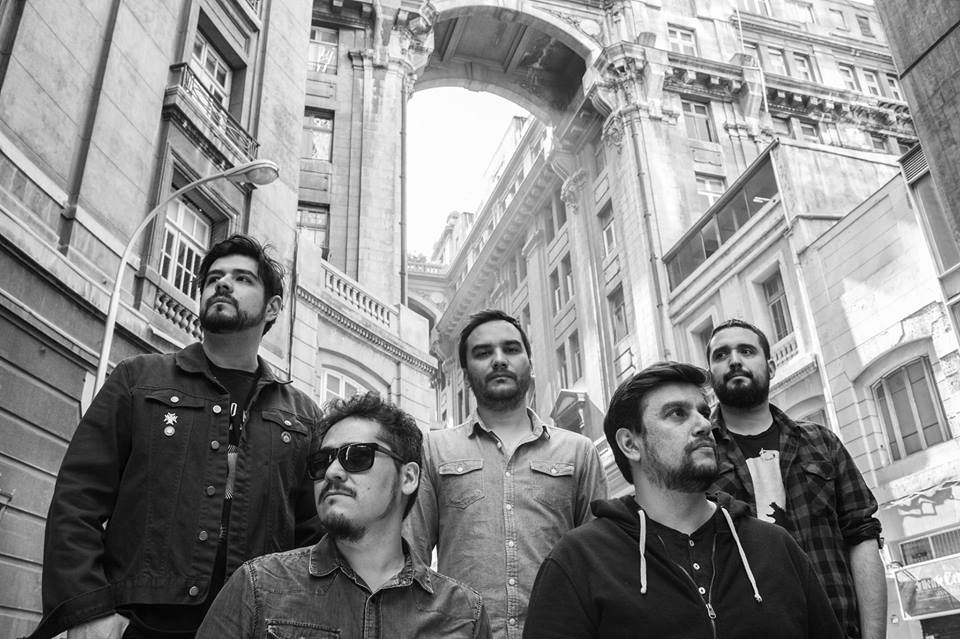
One of the most consistently solid presences in the Chilean music scene for the past half a decade-plus has been Baikonur, whose instantly impactful emergence in the early 2010’s landed them a spot at dunk!festival, the first in a string of South American bands that have made the trip to Zottegem since. While many of the bands on this list share some common elements such as math rock and post-hardcore, Baikonur brings a much more straightforward, studied approach to post-rock, skewing more closely to legacy acts like Mogwai and Caspian. Their newest release Nihil Per Saltum is another thoughtful and impactful release, featuring strong composition and production that keep them near the top of the game in South American post-rock. I spoke with guitarist Carlos Astorga:
Heavy Blog Is Heavy: Baikonur seem to be fairly established in Chile at this point, with consistently strong output for a period of years. How would you describe the scene for your style of music in Chile?
Carlos Astorga: A lot of independent bands have been formed in Chile, especially in the last three decades (post-dictatorship), and the number is growing exponentially. In the case of post-rock, as in the rest of the world, there has been a rebirth of bands, a period that began here in 2010, and that Baikonur has been a part of. Unlike the pioneers of the style in Chile, which were bands like Congelador, FosfenO, Mota, Jovenabuelo, Nhur, the new bands benefited from the massive use of social media, especially Facebook, where placing a link to your album on Bandcamp or YouTube was much easier and gave better results. All this process let the local bands connect with blogs, collectives, labels, and festivals, which in turn allowed them to go further, and even, for some projects, gave them the opportunity to show their music outside the country.
As for the organization of gigs, everything is very self-managed, as post-rock is not a massive style, and the circuit of local bands usually moves around small venues. Nowadays, however, the appearance of new festivals, like LeRock Fest, dedicated to this type of music and its derivatives, is allowing bands to reach a wider audience, so we hope that initiatives like these will continue to grow.
Some of the contemporary and active bands that I can recommend are: La Ciencia Simple, Meridiano de Zürich, La Bestia de Gevaudan, Llueven Animales, Osorezan, Sistemas Inestables, Icor, Covarrubias, Antar, Volkan, Davijius.
HBIH: One thing I noticed when researching this piece is that seemingly all the post- music in South America comes from Chile, Argentina and Brazil. What do you think the reason for this is? Or, does the rest of the world just live in a general state of separation from South America and are missing out on entire scenes of music like this spread over the continent?
CA: It’s not entirely true, as there are excellent post-rock bands in the rest of the South American countries as well, but it does seem that most of the best ones come from Chile, Argentina and Brazil. The explanation, I think, is a sum of many factors, such as the European influence since the colonial era, the presence of large cities, the economic stability, the access to the internet, music festivals, and I would even say the lack of local identity. Our societies are very permeable, which of course has a positive and a negative side. Many times we feel alien to our own culture, and growing up in that reality exposes us to a lot of foreign music and consequently lets you be influenced by bands from other latitudes. The analysis could be much deeper and we could mention the disdain of certain political groups towards the local indigenous culture, but that is the history shared by all of South America, from its colonization until today. And although I feel in debt to the original musical, I cannot deny how lucky I feel to be able to explore music from anywhere around the world and choose to make the one I like the most.
When you think about South America, you generally think more of the Caribbean caricature, of the heat, the parties, the beaches, the joy, and with it the incredulity that there is something different other than the tropical music or the festive music like reggaeton. The reality, however, is totally different. The rock audiences in Chile, Argentina and Brazil are massive; simply look up Iron Maiden concerts in these places on YouTube. There is an impressive amount of South American music, and much of it under the total ignorance of the rest of the world. Sometimes you can find complete universes in unimaginable places. South America has a lot of musical history and countless bands of any style you can think of, even post-rock.
HBIH: Baikonur made an appearance at dunk!festival in 2016, which helped establish a yearly trend of Chilean bands making the trip to Europe for the event. What was that experience like for you?
CA: It was an incredible experience, both for me and for the rest of the band. It was our first show outside of Chile and it was at Dunk!Festival, a dream-come-true event. Those who have not lived the experience of Dunk! Festival do not understand how special this festival is, and that a style of music so marginal has a festival with bands and crowds from all over the world is total madness. The atmosphere there is very special: there is something cozy, something homemade, something honest there and that something you cannot find at any other festival. That is why we are happy to have been the first band from Chile to perform at Dunk! and in some way to have opened the door to the music that is being made in Chile to be more widely known. We are hoping we will return soon.
HBIH: Speaking of your European experience, this appears to have been kickstarted by LeRockPsichofonique and their continuing relationship with dunk! What is it like having a collective and representation like that in Chile? It seems like a very integral piece that is lacking in other area of South America.]
CA: When we released our first album Quién vigila al hombre cansado?, we applied to play everywhere, also at Dunk! Festival, but it was not the right time and the line-up was already complete. A year later LeRockPsicophonique invited us to be a part of the label and they themselves communicated with Dunk! securing a slot for us in the 2016 edition. It is clear that being backed by a label or collective gives you more credibility and seriousness.
We have seen the growth of LeRock since its inception, and we are aware of all the work that Rodrigo Jarque and his team have done to make a name for themselves in Chile and the rest of South America. They have achieved it, and we are proud of them, and happy to belong to their collective. Today they have the most important post-rock catalogue in Chile and that is something that no one can deny. On top of that, their festival “LeRock Fest” is marking the before and after in regard to massive events of this type music in Chile. I’m sure they will go very far.
Helices (Antofagasta)
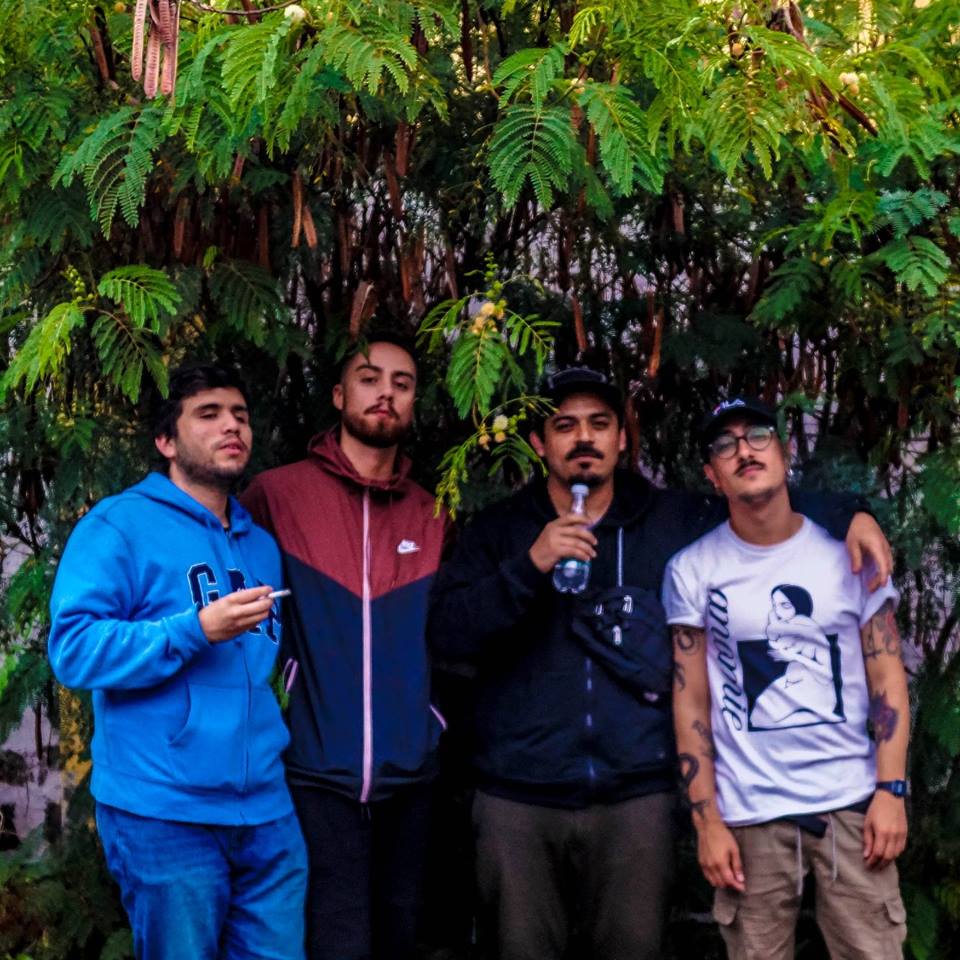
When I reviewed Helices’ first record Propulsor a few years back my description was something along the lines of “what it would sound like if members of The Sound of Animals Fighting and The Mars Volta tried to collaborate on an Explosions in the Sky cover but quickly scrolled off the page.” I am sticking to that as being possibly the most accurate depiction of this band. They are stacked with energy, experimentalism, guitar wizardry and rhythm section heroics. Their follow-up EP Puentes is a much mathier affair, and no less mind-boggling in its high-wire proficiency. The band has been relatively quiet since 2016 but their social media indicates that they have a new single entitled “Travesia” dropping very shortly.
La Bestia de Gevaudan (Santiago)
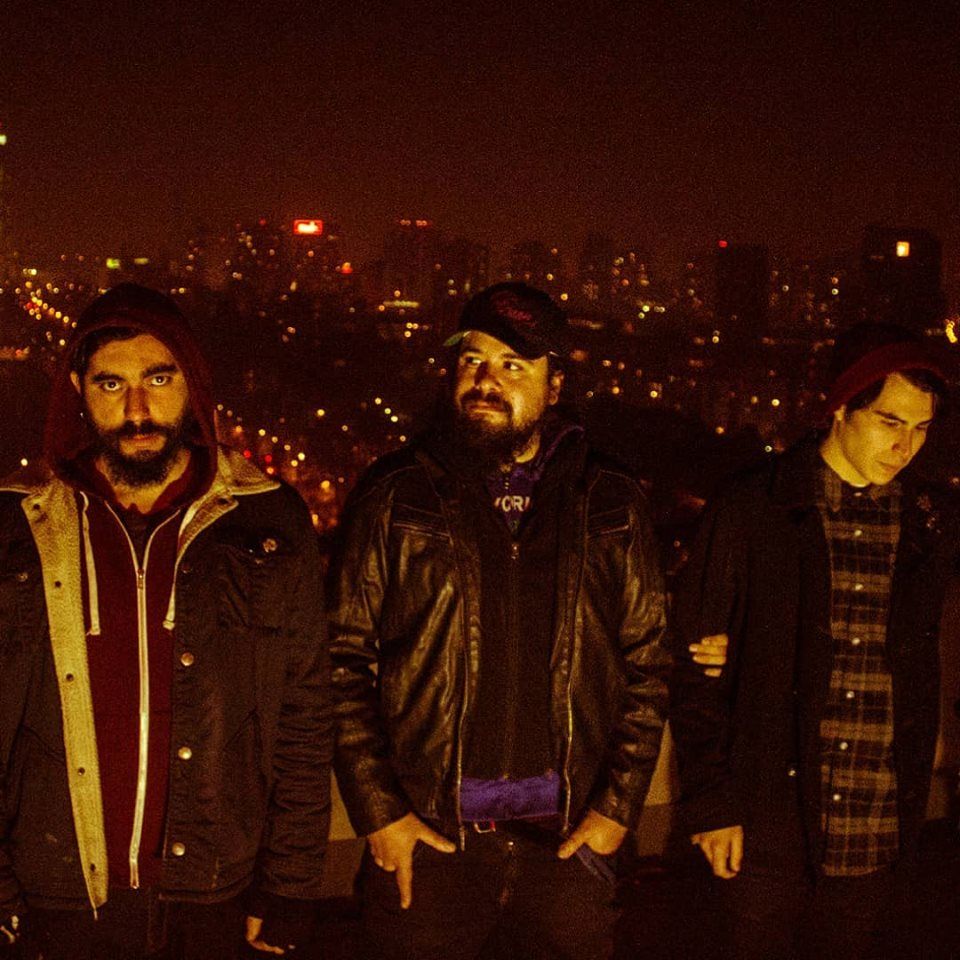
On the surface La Bestia de Gevaudan is one of the heavier bands on this list, but as you work through their albums there is an overarching dreaminess, as tracks break down from the high-intensity, weighty riffage and anguished screams into extended melodic sequences that weave a spell as they build and bury their way into every part of your brain. It’s conceptually similar to Isis, but with a less carefully-measured, more distinctly energetic approach. Their 2017 album En Vivo Sala Master begins with a barrage, but as it settles in it becomes more and more sonically complex and emotionally engaging. Their upcoming album Kintsukoroi releases in early July and includes a track featuring guest vocals from Rosetta’s Mike Armine.
La Ciencia Simple (Santiago)
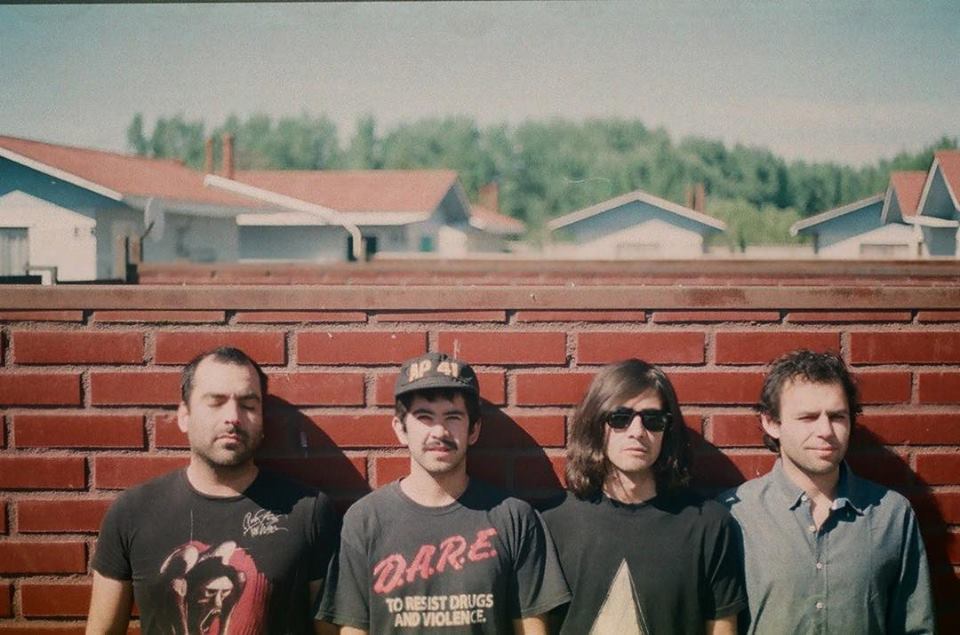
Another in the series of Chilean bands to travel to Belgium for dunk!festival (they appeared on stage there in 2017), La Ciencia Simple plays a free-wheeling, open-air interpretation of post-rock and ambient with some electronic flourishes. Their style is reminiscent of bands like From Oceans To Autumn and Hubris, as the freedom with which they approach their compositional style translates directly into the listener’s ear, offering a unique sonic experience that feels like drifting calmly into the void as it begins to yawn wider and evolve before your eyes.
Osorezan
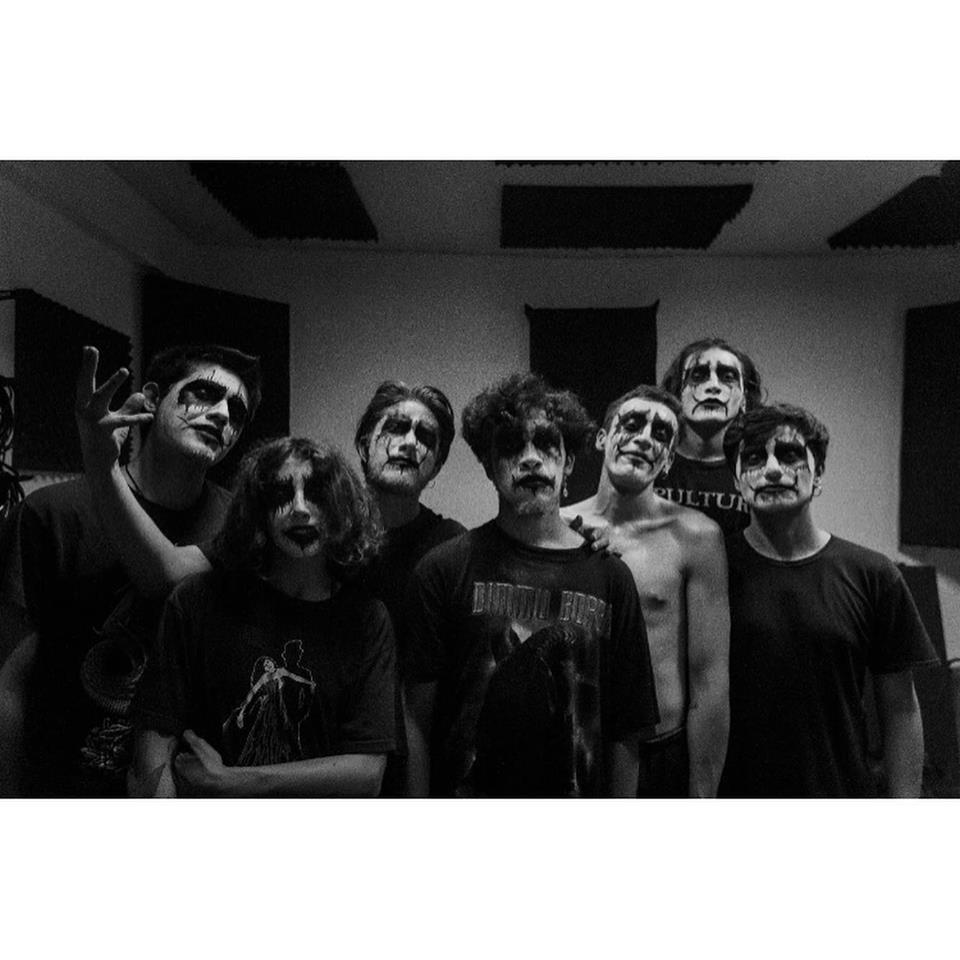
They’ll be making their first appearance at dunk!festival this year, and when they take the stage and people see them in their full black metal face paint it’s unlikely they’ll be expecting the kinds of sounds they’re going to get. With their extended track lengths, dark, dramatic soundscapes and the presence of strings as a central instrument, comparisons to Godspeed You! Black Emperor are undeniable. But that’s certainly not a bad thing, as their 2018 self-titled debut presents a compelling case out of the gate. It’s always got a sense of urgency about it, managing to remain entirely engaging even as tracks reach well over the 10-minute mark. Their style screams to be observed in a live setting, so if you’re one lucky enough to be making the trip to dunk! this year make sure to mark down Osorezan as a must-see.
Sistemas Inestables (Santiago)
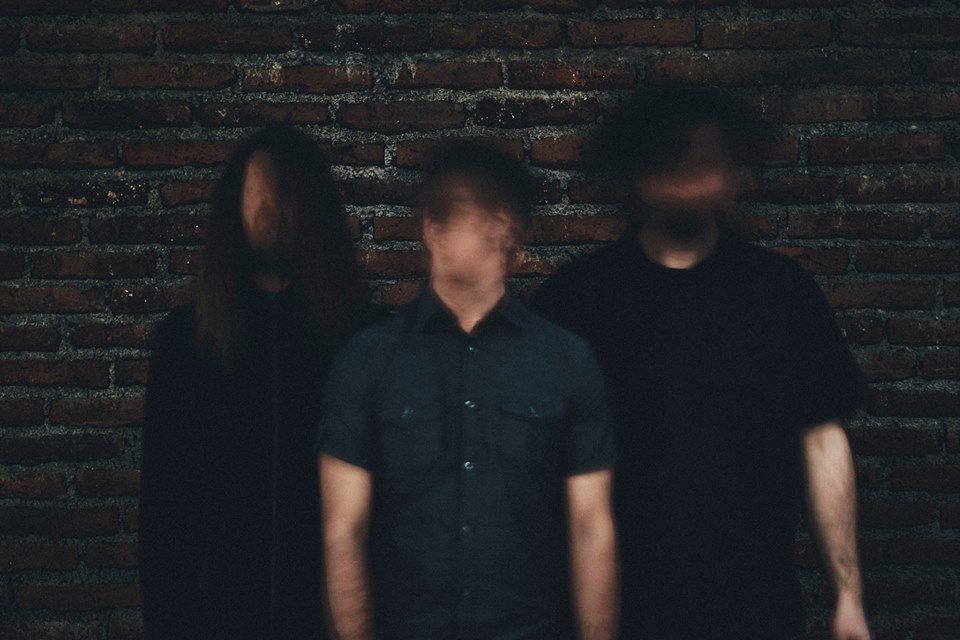
Joining Osorezan back-to-back on the dunk! main stage this year will be this experimental avant-rock trio. The primary focus here is to build an organic groove and then layer in electronic augmentation, keeping each composition in a constant state of evolution. Their 2018 debut album O doesn’t feel like it’s coming from a new band; it’s a fully formed, mature and thoughtful piece of work that never rushes, taking the necessary time to build impactful rhythmic cadences that attach themselves and continue to tighten their vice grip until the listener is forced to relent. The space-rock approach of the guitar and bass serve to open each song up – while the grooves stay tight the sounds surrounding them appear to float into realms of complete improvisation, though always finding their way back around. If you enjoy music that possesses a palpable sense of freedom, this band is most definitely for you.
Tortuganonima (Santiago)
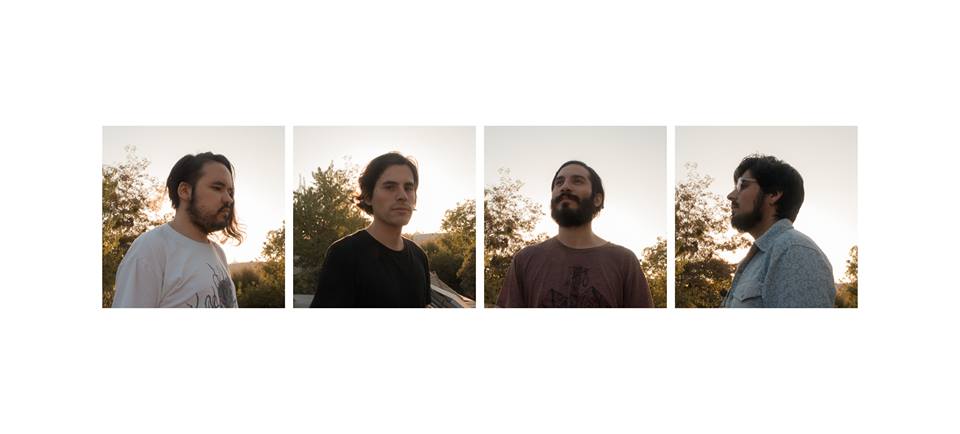
Probably the most recognizable name of all the Chilean bands on this list, tortuganonima has been the shining example of South American math rock for several years now, demonstrating a note-perfect, tight and clean approach to the form. It’s velvety-smooth but possesses an emotional heft that certain bands tend to lose sight of in this genre in their quest for technical wizardry. On their most recent EP Asteral they also brought in vocals for one track and flute, trumpet and trombone for another, showing their dedication to evolving the concept as they continue to perfect a style that clearly holds a great deal of importance in South American music.
You may be noticing a trend for the Chilean bands of making the trip across the sea to Europe for dunk!festival appearances, and this is no coincidence. It is in large part thanks to LeRockPsicophonique, a label/collective that also boats their own festival (clearly paralleling what dunk! is doing in many ways), and Rodrigo Jarque, who is hard at work behind the scenes pulling a lot of the important strings. We talked to Rodrigo about his endeavors with LRP.
Heavy Blog Is Heavy: Getting right to the point, LeRockPsicophonique appears to be the most organized label/collective currently operating for niche rock genres in all of South America. How did you get started and what has the growth process been like? How integral is it to establish this kind of a collective where you reside?
Rodrigo Jarque: I started LeRockPsicophonique in 2006, when I released my solo album Monstruos Bajo La Cama. It was a dark album nobody cared about. So I decided I wanted to start my own label. I felt alone musically during years when Chile was only paying attention to folk singers and cumbia. I asked a friend to do a logo for me, I put it on the artwork of that record and that was it for a while: a logo on my first solo album. The album, nevertheless, started to be reviewed by some magazines and other blogs. Some of the songs even got synchronized on films in Spain. That kind of put me on the radar for some people and media, at a very small scale, though. But I saw a chance there. I asked friends who were putting out albums by themselves at the time if they wanted me to help them distribute their stuff in exchange for putting my logo on their artwork. That’s how it started out. Then, I think it was in 2014, my partner in business –Javier Hechenleitner– entered the scene and we started working together. He put things right. He pushed me to make the label something meaningful for the bands and myself, not just a fucking logo and some hyped reviews on independent online magazines. To really do things. And it’s been great and growing ever since. We have touring concerts all over Chile. We are on exchange programs with other labels in Latin America and Europe, and hopefully the US. We also started our own festival last year and we’re just trying to make this type of music visible and professional.
HBIH: You have been sending bands to Europe, specifically dunk!festival, for several years now as a kind of “cultural exchange program,” as you refer to it. Tell us a little about how you began building this relationship.
RJ: We started visiting the festival in 2016, with our first Chilean post rock ambassadors Baikonur. Then we managed to get a slot for La Ciencia Simple in 2017 and tortuganónima in 2018. The festival has been a huge landmark on its own for a long time now, so although we knew about it some years before we actually decided to get in touch with Luc and Wout, we really wanted to have something powerful to offer Dunk! as a label with our bands. I remember I sent an email to the festival webpage offering this cultural exchange program where we could have Chilean bands going up to Europe and Dunk! Records bands coming to Latin America. Luc (the festival director) replied almost immediately saying that he was all into it. He and Wout have been extremely open and generous. We haven’t stopped since then. I’m pretty sure they pioneered in the way they opened the door to different post rock expressions coming from Latin America and the world. Next year, I really want to make it possible for a Dunk! Records band to come to our LeRock Fest to see for themselves up to what extent instances like Dunk! Festival, Arctangent, Vivid, AM Fest and labels like A Thousand Arms in the US, have positively affected the development of these genres in Chile and in the region.
HBIH: A cursory glance at this list reveals that every band comes from either Chile, Argentina or Brazil. Can you speak to why there seem to be such strong pockets of post-leaning music in these countries and nowhere else? Or, are there bands doing these styles in other South American countries that simply aren’t reaching foreign shores for whatever reason?
RJ: I’m sure there are bands in every Latin-American country doing post rock, math, shoegaze, sludge and any other niche music you can think of. Chile, Argentina and Brazil are leading because it’s where big music festivals have developed steadily over the years. Maybe it has to do with the capital model lead by these states. That, and maybe because there’s a certain nostalgia given the landscape and the history. I’m talking mainly about Chile now. We’re still struggling with wounds inherited from the nasty dictatorship, our geography is fucking crooked and has us almost falling into the Pacific, and so on. I really don’t know why. It maybe has a lot to do with that tendency in these three countries to always be looking at what is happening in Europe and in the US. It’s referred to here as this “Europeanizing” vision that countries like Perú, Bolivia, Colombia and others don’t have to suffer. But this is a very good question that will keep me awake tonight, for sure, hahaha.
HBIH: You’ve been running the LeRock festival in Chile. Tell us a bit about that experience and what your ultimate goals are for it.
RJ: Yes, we started last year with the first version. It exceeded by far our wildest expectations. We focused on Latin-American instrumental music, electronica, and shoegaze. It was a way to see what was happening, who was doing what and how we could connect in the region. It was life changing to see bands coming from Perú and Argentina, paying their flights just to say “here we are and we want to show what’s going on in our countries with this music”. It became a brotherhood instantly. This year, we’ll have Argentinians helping us organize shit here, we’ll have bands from Mexico, Perú, Argentina, the US, the UK, Colombia. Everyone is helping. Some will be in charge of the catering, other will be cutting tickets, others will help with the organization in the stages, etc. It’s fucking beautiful.
And I think our ultimate goal is just to make something visible: some certain types of music that nobody expects from Latin-American countries. We want niche music to be visible, interesting, appealing, exportable and enduring. And we want to have fun, of course. Doing this and not having fun with it is just nonsense.
HBIH: You have previously mentioned wanting to get some of your bands to America, as well as some American bands to Chile. Ultimately, how far can you imagine taking this music and what are some of your long-term goals?
RJ: Yes, it’s in our spirit to spread it as far as possible. And we want to know first hand how bands and labels are running things in the US. Music connects people, but what does that shit really mean? Holding hands and walking in the park while you share one end of your headphones with the one you love? Getting people together at a concert? Might be. But I really think that at least for us, just regular people in bands, it’s a lot about learning how things are done in Belgium, in the US, in México or even in Perú. It’s about actively helping each other move our butts to overcome all the things that get in the way when bands want to expand their careers. Right now, for a band playing instrumental music in their garage after school in Indianapolis it might be a crazy idea to think about touring South America one day and seeing places and sharing their talent with people who speak a different language. We’d like that not to be a crazy hallucination anymore. We want it to be a right for young musicians. And it’s up to us, the labels, the other bands who have toured, the promoters, the people, the friends, and ultimately the governments.
HBIH: What is one thing you’d like people around the world to know about Chilean (and South American) music that they might not be aware of?
RJ: That we’ll come for them! hahaha. Seriously, first thing I’d like people to know is that we need to fight the stereotypes. It’s all about that. Why would anybody want to hear a post rock band from Chile? Are these guys not supposed to be playing salsa, cumbia and boleros? Why are these Latinos not dancing La Macarena? So, I can tell you that we have our own twist to post rock or any other alternative type of music and I’m sure people would be surprised about the level bands have. I mean, even in Chile the media is not aware of this, they perpetuate the stereotype. When I released my band’s last album, Después de Mañana, I had Neil Halstead from Slowdive playing guitar in the first single, “Luz Ignota”. Our teenage hero! It was a dream come true for us and it should have pushed things for Chilean alternative music. But, what do you think was the reaction of the media here? Nobody fucking cared! That tells you a lot. I figure we Latinos still have a long way to go before we even accept ourselves and our diversities. So I imagine that would be one of the key things I’d like people to know about Latin-American music: there’s more to it and we have a voice in alternative music.
While this is a feature focused on South American bands, I would be remiss not to mention some noteworthy artists hailing from Central America as well. There is so much more that could be delved into, but for now, if you find yourself interested in exploring further, these five bands are a great place to start